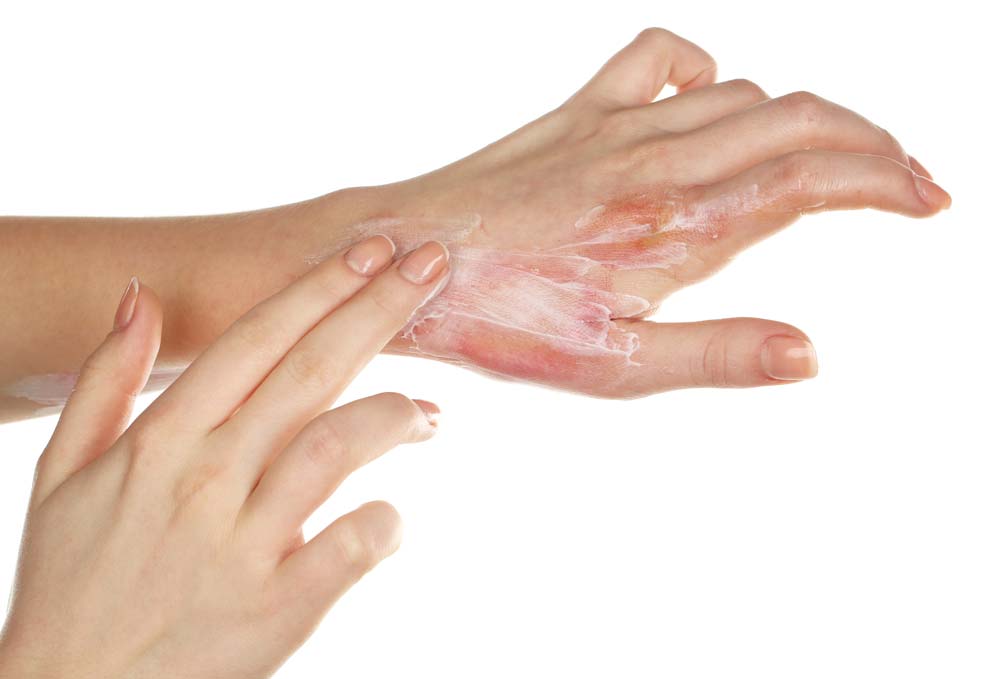Burns
There are different types of burns of varying degrees: First-degree (superficial) burns These are the lightest burns you can get and affect only the epidermis. Burned skin is red, slightly swollen, painful, dry and has no blisters. Lightly sunburned skin is an example of this. Tissue damage on...
Read more






